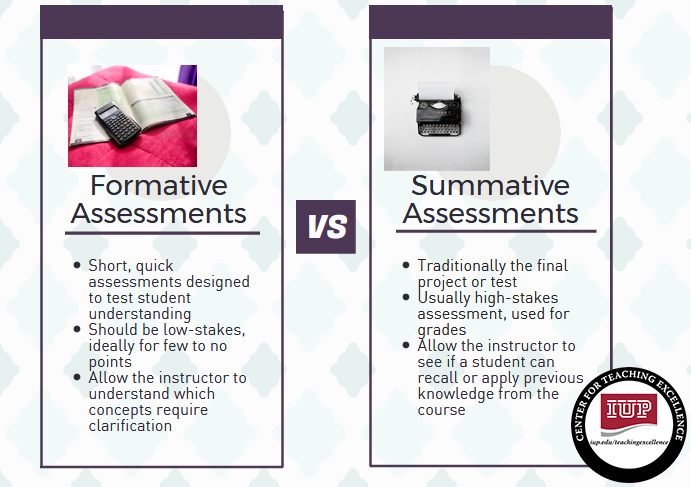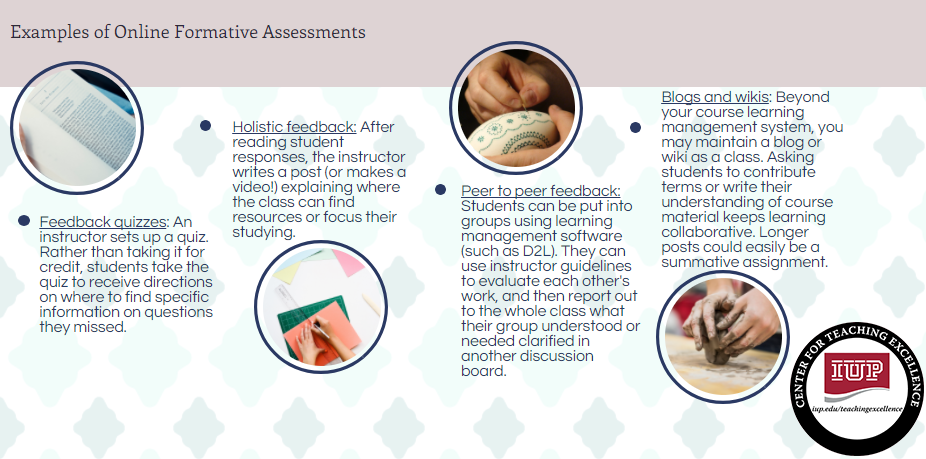In last week’s Monday Morning Mentor (MMM), Dr. Jean Mandernach (Grand Canyon University) discusses the ways in which traditional online educational theory and approaches can be revamped for the online learning environment. She says the best way to build innovative assignments is to make sure they are authentic, holistic, and designed after the course objectives.
Instructors designing an online course (or moving an existing one online) should first ask themselves “What is it I want my students to know?” Once the objectives are clearly established, then instructors should start asking themselves what students should be able to do to demonstrate their knowledge through smaller, formative assignments and larger, summative ones.
Formative assessments, Mandernach says, can be designed online a number of different ways, and work well in an online environment because their primary goal is to give feedback. While traditional methods, such as a one-minute paper, can be easily submitted and graded, instructors also have the option to use online quiz features. Quizzes need not be for points: Instead, they can be tools students can use to gain their own learning (mastery quizzes), or can be set up to give feedback related to each question, directing students to a textbook or website where they can check their understanding.
Learning management systems allow a host of other tools, including the ability to set up peer to peer feedback groups, where students can check others’ work, and holistic feedback for the entire class. Each option can be built in when it matches the learning objectives, making it easy for instructors to pick and choose from a variety of ways to give feedback that also manage the instructor’s workload.
Likewise, Mandernach covers the various ways instructors can change the types of summative assessment they use. By moving beyond the paper, she says, instructors are encouraging their students to interact with the content “in a meaningful way,” which will help to keep them engaged in the course. Blogs, wikis, debates with peers, multimedia presentations, and demos are all mentioned as possible methods beyond the research paper. These methods, she says, have the added bonus of preventing cheating, as it is much harder to buy a blog post than it is to buy a traditional research paper.
To create assessments that will keep students engaged, instructors are encouraged to go back to the core objectives for their course. The supplemental materials offer additional helpful examples of how Mandernach has used some of these activities in her own classroom. The key is to keep learning experiences authentic and meaningful.
The Monday Morning Mentor is one of the complimentary subscriptions offered to all IUP faculty as a gift from the IUP Center for Teaching Excellence. While the MMM webinar itself is only available for one week, IUP CTE maintains an archive of transcripts, slides, and handouts offered as part of each MMM webinar. Contact Sharon Aikins, CTE Administrative Assistant at saikins@iup.edu if you would like to request these supplementary materials. Be sure to provide the title of the webinar and the date with your request.
Written by Lauren Gaynord
Edited by Marie T. Webb



